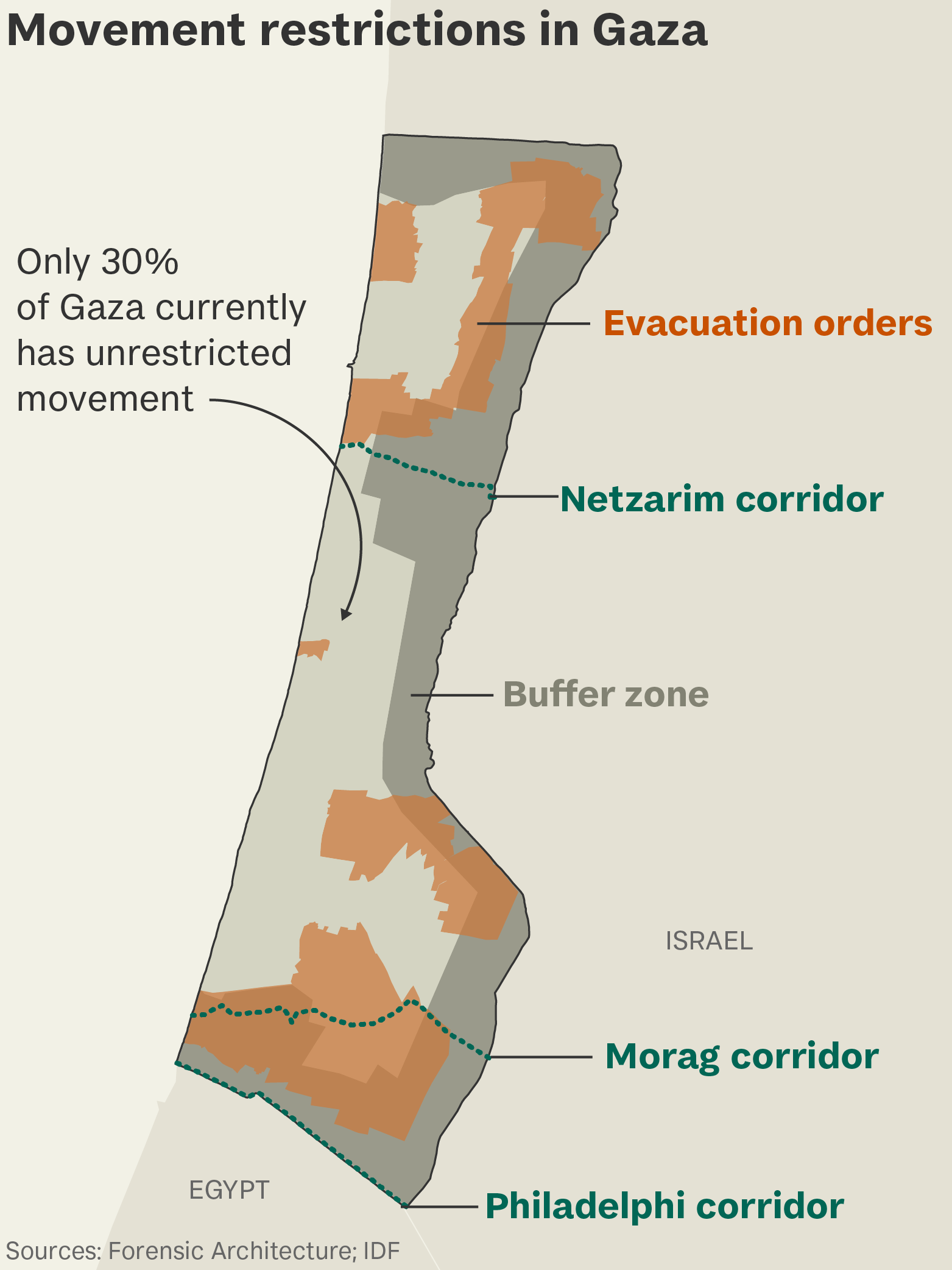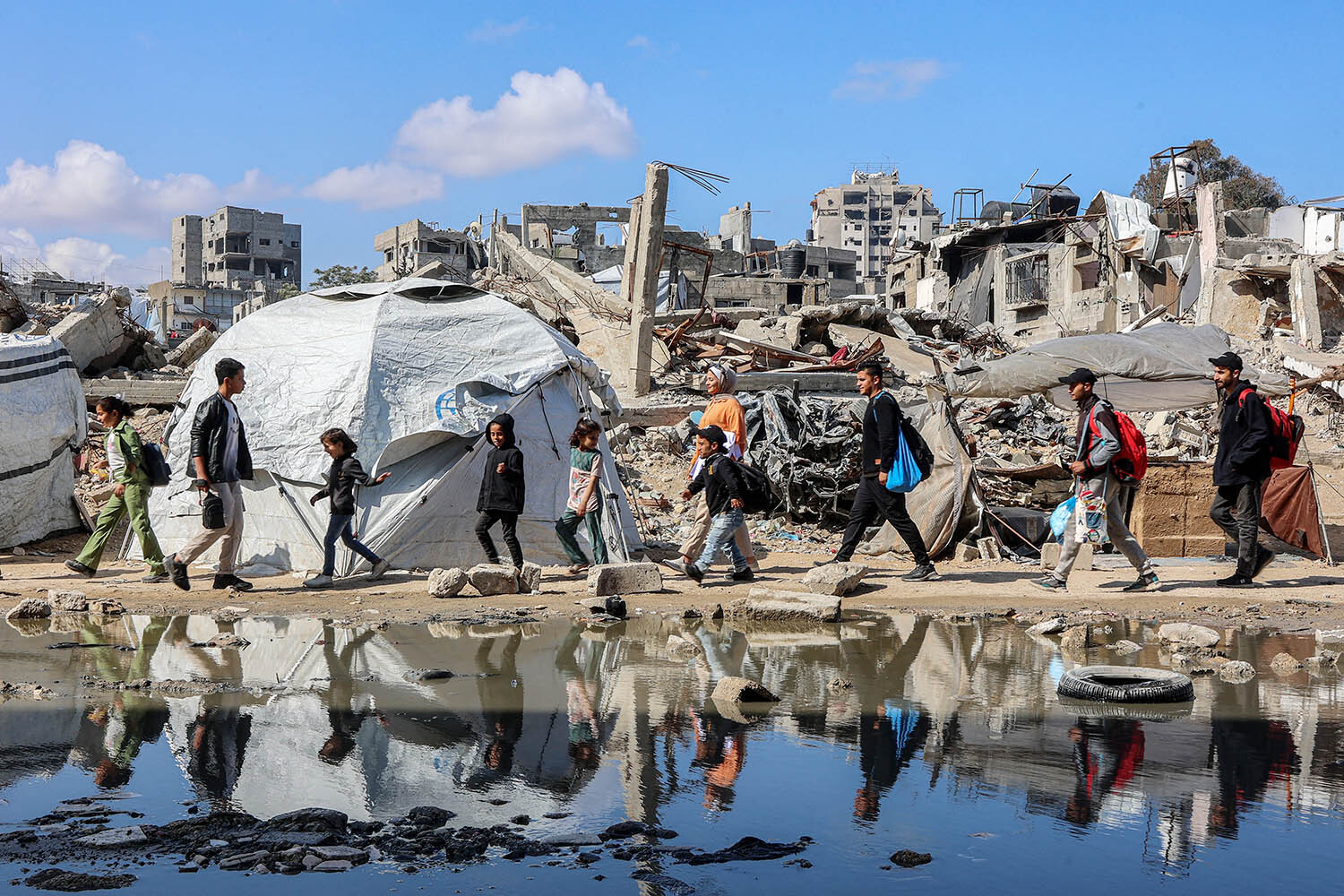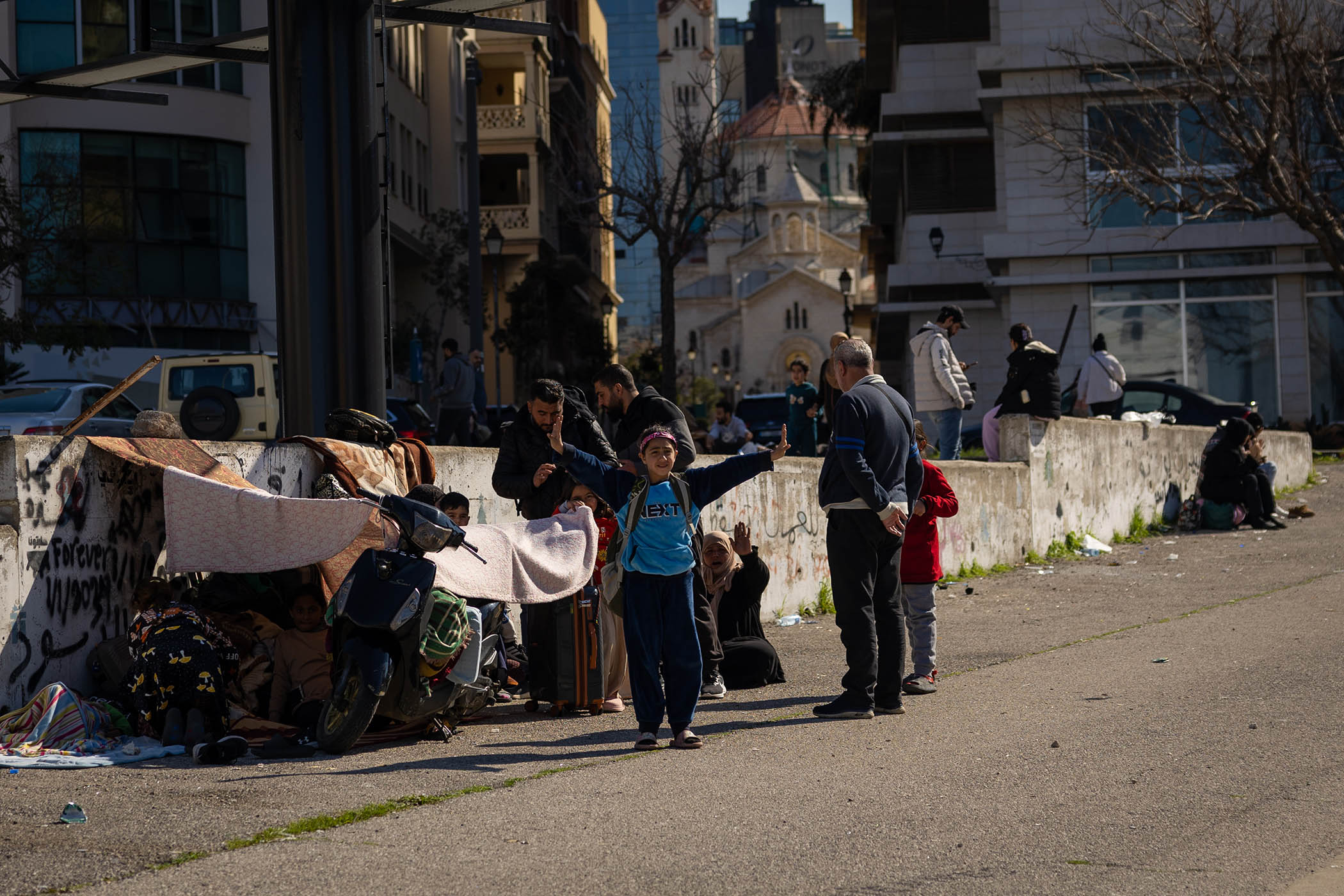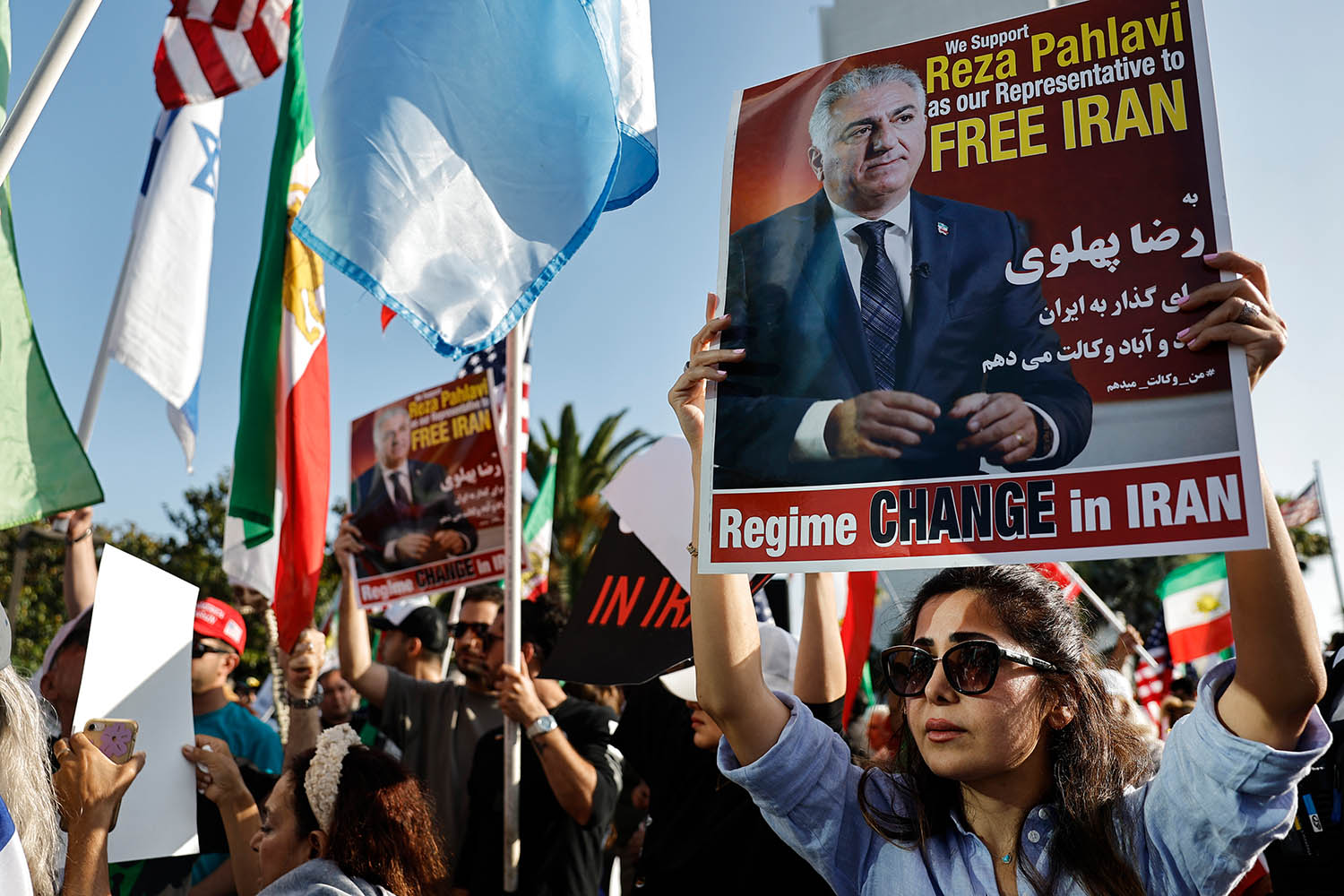Israel has threatened to launch its most intense offensive yet in Gaza if Hamas does not agree to release the remaining hostages by Trump’s visit to the region next week. The militant group says it will not free the hostages unless there is a complete ceasefire and full withdrawal of Israeli forces from Gaza, per the original deal struck in January.
That means Israel’s new plan, Operation Gideon’s Chariots, is likely to become reality. An official said on Monday that it would include the “conquest of Gaza”. To get to the details it involves
•
displacing the Strip's entire population of more than two million to a “humanitarian zone” along the enclave’s southern border, less than a quarter of the size of Gaza;
•
seizing territory across Gaza, which would remain in Israel’s hands indefinitely;
•
flattening what remains of Gaza’s buildings and infrastructure; and
•
encouraging what has been described as “voluntary emigration”.
Six European foreign ministers said on Wednesday that any scheme of permanent displacement of Palestinians would violate international law.
But in a few senses, Gideon’s Chariots is already in motion. More than 90 per cent of housing units and 70 per cent of all structures in Gaza have been damaged or destroyed by Israel. In addition, more than 70 per cent of Gaza is under de facto Israeli control. This includes
•
a rapidly expanding “security zone” along the Strip’s perimeter, which now encompasses whole cities and measures approximately 174 square kilometres;
•
a further 144 square kilometres where aerial bombardment is particularly intense, subject to evacuation orders since the ceasefire collapsed in March; and
•
two military axes cutting across the Strip: Netzarim in the north, and Morag in the south.

After barring the entry of any food into Gaza for more than two months, Israel looks like it will resume allowing aid into the Strip – but solely to the new “humanitarian zone”. It will be distributed by US private security contractors after the UN and other international aid organisations refused to take part in the plan.
The Israeli government will reportedly allow 60 aid trucks a day – compared to 600 before the war – which it says are sufficient to “prevent starvation”. But malnutrition is already taking its toll. The World Food Programme ran out of food in Gaza at the end of April.
One key obstacle to Israel’s re-mobilisation plans is turnout. The IDF wants up to 70,000 reservists, but the army has admitted to a 30 per cent drop in attendance in recent weeks. Some reports put the number closer to 50 per cent.
Protests against the war are also likely to intensify, with polls suggesting that a majority of Israelis think their government is prolonging the war for political rather than security reasons. Nearly 70 per cent support a deal to end the war and return the hostages. A majority oppose fully occupying Gaza.
Netanyahu said defeating Hamas is Israel’s primary objective, while the army has reasserted that freeing the 59 remaining hostages held in the Strip is the main war aim.
But the prime minister’s far-right coalition members have their own goal in mind: restoring Israeli control over Gaza and re-establishing Jewish settlements over the rubble of Palestinian cities. With Netanyahu reliant on their support, such a scenario appears increasingly plausible.
Newsletters
Choose the newsletters you want to receive
View more
For information about how The Observer protects your data, read our Privacy Policy
This is not to say these plans won’t carry their own cost back home. Hostage families fear the new offensive will endanger their loved ones’ lives. Israel’s army chief has warned as much in meetings.
There is a financial price too. More than 400 schools in Israel closed this week due to teacher strikes over pay after the finance ministry greenlit a 3.3 per cent cut to the public service sector budget to free up urgent war funds. Experts have warned that Israel’s plans would lead to a sharp rise in the country’s deficit and debt-to-GDP ratio.
Donald Trump is expected to visit Saudi Arabia, Qatar and the UAE next week, and will want those meetings to run smoothly to advance proposals for a Trump Tower in Jeddah and a Trump golf course in Doha. Meeting against the backdrop of Gideon’s Chariots will not make things easy.
The US has responded by tabling a limited deal that would involve opening aid crossings into Gaza in exchange for the release of a few hostages, including one with American citizenship. But there is no sign that Israel will deviate from its agenda.
Photograph by Omar Al-Qattaa/AFP via Getty Images
Graphic by Bex Sander.



